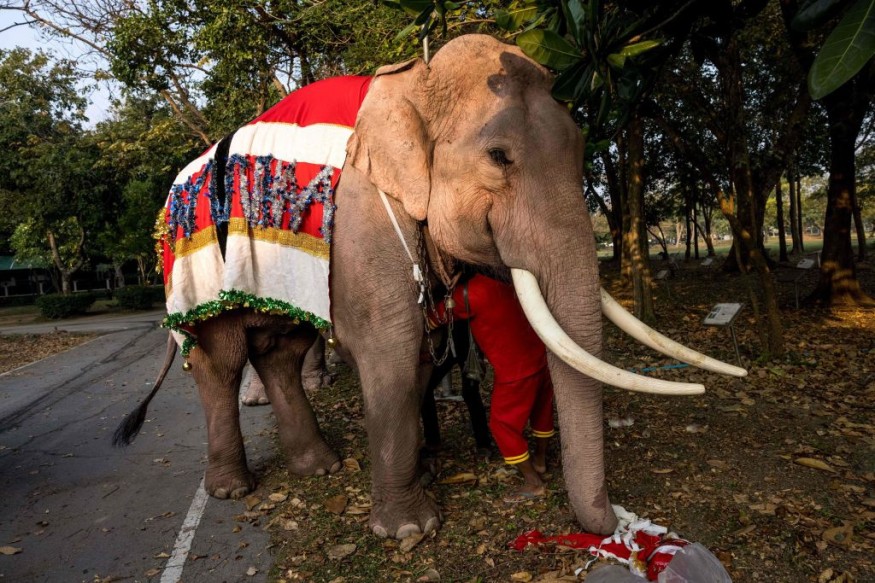Elephants participated in a fruit and vegetable buffet as part of the annual National Elephant Day in Thailand on Sunday, March 13.
Despite the pandemic, the celebration continued in the Chon Buri and Surin provinces where hundreds of elephants feasted on a huge banquet of fruits and vegetables.
Being the largest mammals on Earth, elephants are considered sacred in Thailand as they are part of its culture and religion.
However, animal rights groups are still seeing cases of animal cruelty against the tusked mammals, which are subject to ongoing legislation for their protection.
National Elephant Day

Thailand celebrated its National Elephant Day on Sunday at the Nong Nooch Tropical Garden in the Sattahip district of Chon Buri and at an elephant village in the Tha Tum district of Surin, according to the Bangkok Post.
Hundreds of elephants participated in the buffet as a sign of their continued value.
In Chon Buri, almost 60 elephants feasted on the buffet, while around 300 elephants were present in the celebration in Surin.
The elephants have proven to be an attraction for tourists and are considered to be a part of Thailand's culture and religious heritage for thousands of years.
Previous celebrations of the National Elephant Day were attended by both local and foreign tourists who feed the elephants, but the pandemic has slightly toned down the celebration in Thailand, as per CNN.
Still, local authorities have decided to provide a fruit banquet for the elephants.
Cultural and Religious Value
Elephants in Thailand symbolize the country's national pride and cultural identity, these large mammals have been used ever since as support to labor, transport, and battlefield victories by monarchs, as per the Bangkok Post.
The cultural and religious importance of elephants in Thailand is of paramount value.
According to the Southern Thailand Elephant Foundation, elephants have always been attributed to Buddhism, including Buddhist teachings and Buddhist texts.
The organization emphasized that elephants are integrated into the origins and modern Buddhist faith, which is said to be integral in Thai culture.
Although this has been the case for elephants in Thailand, the current treatment and activities of captive elephants are perceived differently by animal rights groups.
Animal Rights Law
Multiple reports indicate that animal rights groups have long denounced perceived elephant abuse in Thailand.
These groups have demanded elephant camps in Thailand to put an end to animal shows and animal rides, indicating these entertainment activities are a form of animal abuse.
However, Thailand is currently engaged in developing the so-called "Elephant Bill" which aims to protect elephants through several measures, including stopping animal cruelty on captive elephants and banning commercial breeding and elephant shows, as per the World Animal Protection organization.
Although Thailand currently has laws when it comes to protecting elephants, the organization clarified that the bill aims to fix alleged loopholes and shortcomings of the current Thai animal welfare laws.
The Elephant Bill will primarily target wildlife and entertainment exploitation of elephants.
Related Article : Road to Extinction: Elephants are Taking the Trees With Them
© 2025 NatureWorldNews.com All rights reserved. Do not reproduce without permission.





